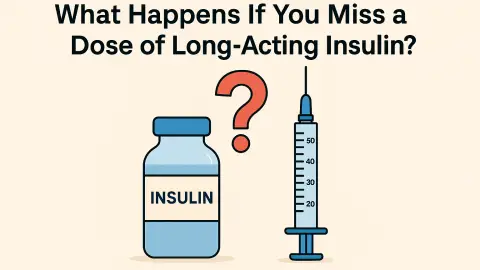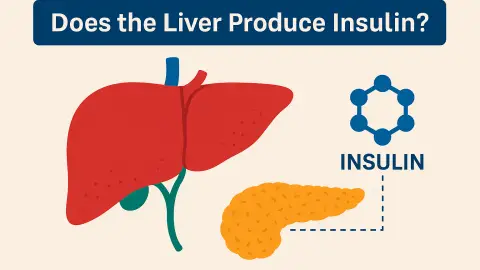This article provides a comprehensive guide to the top causes of diabetes, including lifestyle factors, genetics, and environmental factors.
Diabetes is a chronic disease that affects millions of people worldwide. It is a condition where the body is unable to produce enough insulin, which is responsible for regulating blood sugar levels. This results in high blood sugar levels, which can lead to serious health complications if left untreated.
Elevated blood glucose levels can damage the blood vessels, nerves, and organs over time, leading to serious complications such as heart disease, stroke, kidney disease, blindness, and amputations. Understanding the causes of diabetes can help individuals take proactive steps to prevent or manage the disease. In this article, we will explore the top 20 causes of diabetes.

Overview: Causes of Diabetes
| Cause | Description |
|---|---|
| Type 1 Diabetes | Result of the body’s immune system attacking and destroying the cells in the pancreas that produce insulin |
| Type 2 Diabetes | Develops when the body becomes resistant to insulin or when the pancreas stops producing enough insulin |
| Gestational Diabetes | Occurs during pregnancy and is caused by hormonal changes and genetics |
| Prediabetes | A condition in which blood sugar levels are higher than normal but not yet high enough to be diagnosed as diabetes |
| Other Causes | Include obesity, physical inactivity, a history of polycystic ovary syndrome (PCOS), and certain medications |
Top 20 Causes of Diabetes Listing
- Genetics: Genetics plays a significant role in the development of diabetes. People who have a family history of diabetes have a higher risk of developing the disease themselves.
- Overweight and Obesity: Excessive body weight, especially around the waist, increases the risk of developing type 2 diabetes. This is because excess fat can interfere with insulin’s ability to function properly.
- Physical Inactivity: A sedentary lifestyle is a significant risk factor for diabetes. Physical activity helps the body utilize insulin more effectively and reduces the risk of developing the disease.
- Unhealthy Diet: A diet that is high in sugar, unhealthy fats, and processed foods can increase the risk of developing diabetes.
- High Blood Pressure: High blood pressure is a risk factor for both type 1 and type 2 diabetes.
- Abnormal Cholesterol Levels: High levels of low-density lipoprotein (LDL) cholesterol and low levels of high-density lipoprotein (HDL) cholesterol can increase the risk of developing diabetes.
- Metabolic Syndrome: Metabolic syndrome is a condition that includes a group of risk factors, including obesity, high blood pressure, and abnormal cholesterol levels, that increase the risk of developing diabetes.
- Smoking: Smoking is a significant risk factor for diabetes, as it can damage the blood vessels and interfere with insulin’s ability to function properly.
- Polycystic Ovary Syndrome (PCOS): PCOS is a hormonal disorder that affects women and can increase the risk of developing diabetes.
- Chronic Stress: Chronic stress can increase the risk of developing diabetes, as it can affect insulin sensitivity and glucose metabolism.
- Certain Medications: Certain medications, such as glucocorticoids and thiazolidinediones, can increase the risk of developing diabetes.
- Chronic Inflammation: Chronic inflammation is a risk factor for developing type 2 diabetes, as it can interfere with insulin sensitivity.
- Poor Sleep Habits: Poor sleep habits, such as not getting enough sleep or sleeping during the day, can increase the risk of developing diabetes.
- Certain Viral Infections: Certain viral infections, such as coxsackievirus and mumps, can increase the risk of developing type 1 diabetes.
- Pancreatic Diseases: Diseases of the pancreas, such as pancreatitis and pancreatic cancer, can interfere with insulin production and increase the risk of developing diabetes.
- Age: The risk of developing diabetes increases as people age.
- Family History of Diabetes: People who have a family history of diabetes have a higher risk of developing the disease themselves.
- Race/Ethnicity: Some racial and ethnic groups, such as African Americans, Hispanics, and Native Americans, have a higher risk of developing diabetes.
- Environmental Toxins: Exposure to environmental toxins, such as chemicals and pollutants, can increase the risk of developing diabetes.
- Excess Alcohol Consumption: Excessive alcohol consumption can increase the risk of developing diabetes, as it can interfere
Other Causes of Diabetes
In addition to lifestyle factors, genetics, and environmental factors, there are several other causes of diabetes. The following are some of the other causes of diabetes:
- Certain Medications Certain medications, such as steroids and antipsychotics, can increase the risk of developing diabetes.
- Chronic Illnesses Chronic illnesses, such as cystic fibrosis and hemochromatosis, can increase the risk of developing diabetes.
- Heading: Infections Infections, such as hepatitis B and C, can increase the risk of developing diabetes.
FAQs
Q1: Is obesity a cause of diabetes?
A: Yes, obesity is a significant cause of diabetes. Being overweight or obese can increase insulin resistance and the risk of developing diabetes.
Q2: Can stress cause diabetes?
A: Yes, chronic stress can affect insulin production and regulation, increasing the risk of developing diabetes.
Q3: Is there a cure for diabetes?
A: Currently, there is no cure for diabetes. However, with proper management and lifestyle changes, individuals with diabetes can lead healthy and productive lives.
Conclusion
Diabetes is a complex disease with multiple causes, including lifestyle factors, genetics, and environmental factors. Understanding these causes is crucial in taking steps to prevent or manage the disease.
By making changes to our lifestyles, such as maintaining a healthy diet, getting regular physical activity, and managing stress, we can reduce our risk of developing diabetes.
If you have a family history of diabetes or are experiencing symptoms, it is important to speak with your doctor to get tested and receive proper treatment.
Remember, the top causes of diabetes can vary from person to person, but by being aware of the risk factors, you can take control of your health and reduce your risk of developing the disease.



